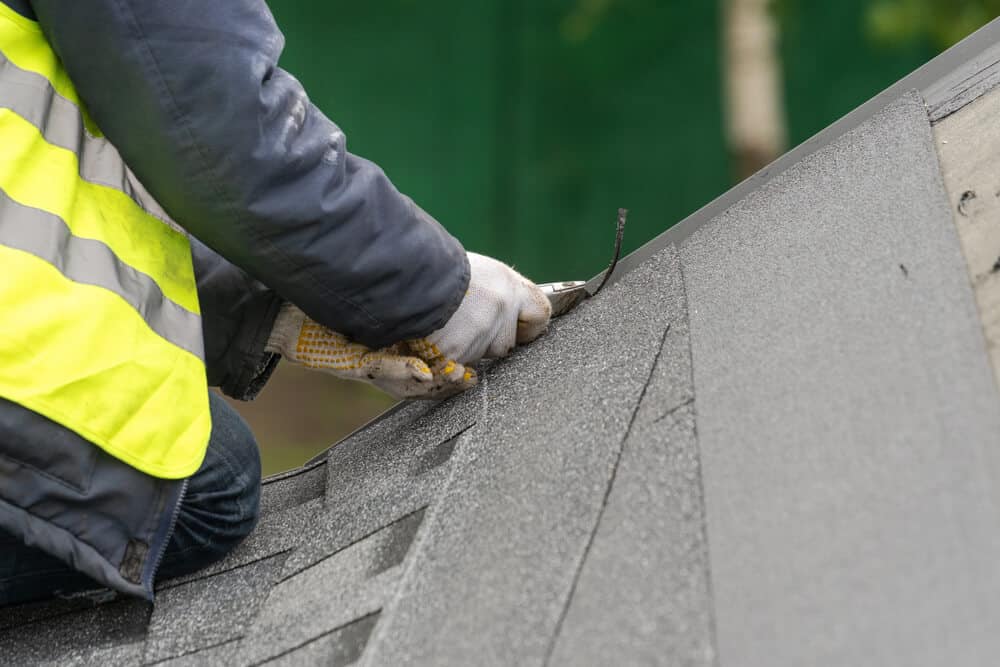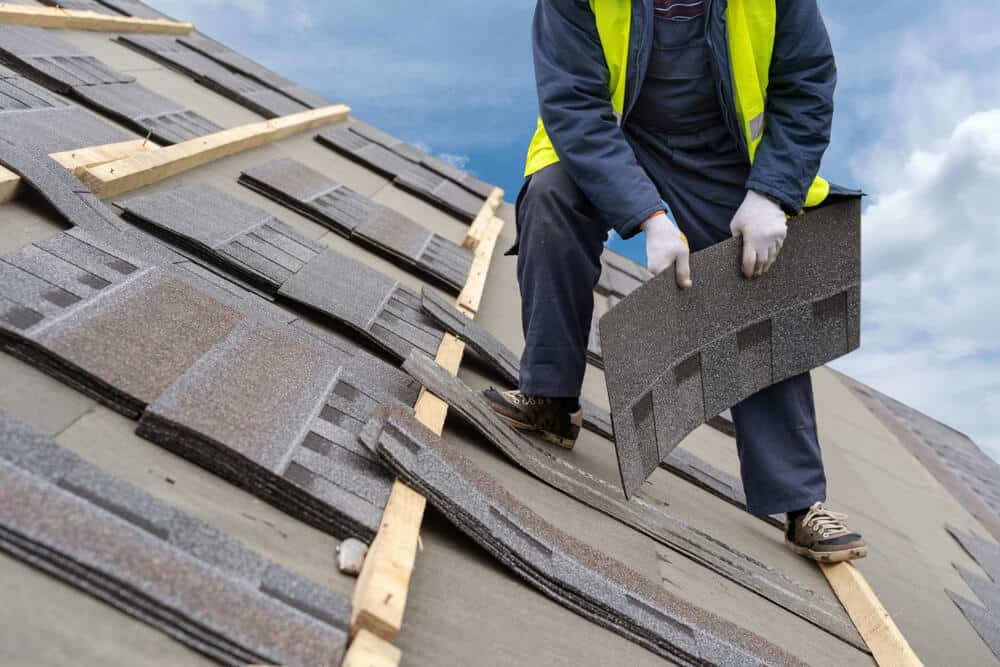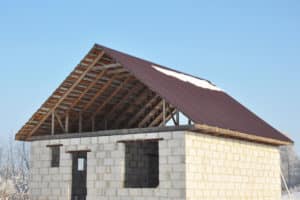At Advantage Construction, we recognize the immense volume of shingle waste generated annually. Astonishingly, over 13 million tons of shingle waste are produced each year, a significant portion of which, unfortunately, ends up in landfills. This not only poses environmental concerns but also represents a lost opportunity for reusing valuable resources.
Owens Corning stands behind sustainability through shingle recycling. Let’s take a look at what goes on behind the scenes with the Owens Corning shingle recycling process when it comes to installing your new roof.
Owens Corning’s Bold Approach to Asphalt Shingle Recycling

How Shingle Recycling Works
The process begins when shingles are removed from roofs for recycling. Instead of being discarded, these shingles embark on a new journey. They are transported to specialized partner facilities, where they undergo a meticulous separation process. This separation is crucial as it ensures that each component of the shingle can be effectively reused.
Transforming Waste into New Products
Once separated, the components make their way to an Owens Corning manufacturing location. Here, the true magic of recycling unfolds as these materials are transformed into new products that contain recycled content. This innovative process not only reduces waste but also conserves natural resources, contributing to a more sustainable production cycle.
The Role of Material Innovation in Building a Sustainable Future
Owens Corning’s mission to build a sustainable future is deeply intertwined with material innovation. By rethinking how shingle waste is treated and repurposed, they are not only addressing environmental issues but are also paving the way for new, sustainable materials in the construction industry. This approach not only benefits the environment but also provides consumers with eco-friendly options for their construction needs.
The Benefits of Choosing Recycled Materials
For you, the consumer, choosing products made with recycled materials has numerous benefits. Firstly, it reduces the environmental impact of your construction projects. By using materials that contain recycled content, you contribute to lessening the burden on landfills and reducing the need for new raw materials. Additionally, products made from recycled shingles are often just as durable and reliable as those made from new materials, ensuring that you do not have to compromise on quality.
Looking Ahead: The Road to 2030
Owens Corning’s goal of recycling 2 million tons of shingles by 2030 is not just an ambitious target; it’s a roadmap for the future of sustainable construction. As we move forward, it’s vital for companies and consumers alike to support these efforts. By choosing products that align with these sustainable practices, you play a direct role in fostering a greener future.
Your Role in Supporting Sustainable Practices
As a consumer, your choices have power. By selecting products from companies like Owens Corning, which are dedicated to sustainable practices, you contribute to a larger movement. Your decision to opt for materials with recycled content sends a clear message about the kind of future you want to support.
Conclusion

We are proud to be a part of this journey and are committed to offering our customers environmentally friendly options for their construction needs. For more information or to discuss how you can be a part of this sustainable initiative, feel free to contact Advantage Construction today.



